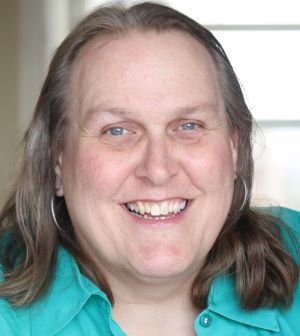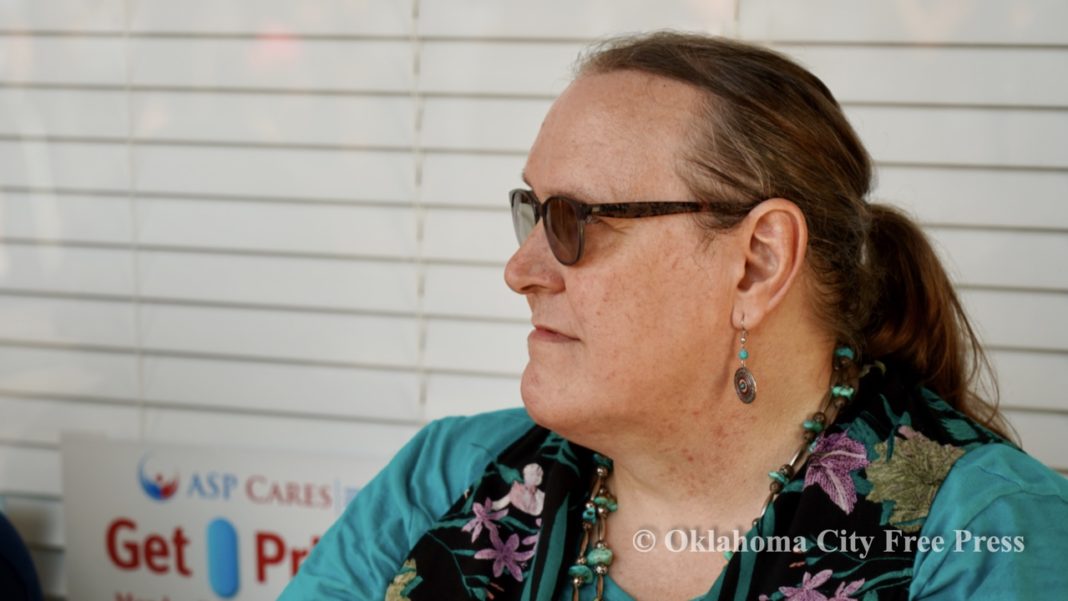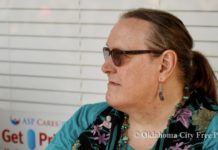Last Updated on January 5, 2024, 12:56 AM | Published: December 10, 2021
Paula Sophia Schonauer, LCSW, continues a serial memoir. If you haven’t read the earlier parts of this series, follow the links at the bottom of this page.
“Seeing is better than being blind, even when seeing hurts.”
― Abraham H. Maslow, Toward a Psychology of Being
I have wondered, would we have remembered the teachings of Jesus Christ without the passion, the suffering, and the death on the cross? Sure, we’re supposed to say, “No, it’s the resurrection, silly. We remember him because he conquered death by rising from the dead,” but what really piques our interest?
We cannot relate to resurrection. It’s a mystery, accepted by faith or rejected by logic. We do not understand it, nor can we contemplate the profound ramifications of a person being resurrected from the dead after so much abuse, so much injury: the physical torment, the loss of blood, the pierced organs; they defy the kind of revival people report after having a near-death experience in a clinical setting.
People are intrigued by suffering, even validated by it. After all, if there had been no suffering, of what consequence would the sacrifice be? Without suffering, there might not have been the agonized cry, “My God, my God, why have you forsaken me?”
A cry like that would not have the weight of merit if Jesus had lived to a ripe old age, having a prosperous life with much joy and happiness, but feeling the terror of the finite when he too finally saw the end approaching. He would seem… petulant, like a spoiled child reluctant to go home after the streetlights come on.
To have substance, we must suffer, if for no other reason than to make people shake their heads and think, “Thank God that’s not me.”
Dante’s Inferno is often seen as a stand-alone epic, but it is one part of a larger work called the Divine Comedy. The tortured souls in hell are easy to imagine, quick to recall, and (shall I admit it?) delicious in their rendering of morbid and gory detail, the stuff of nightmares.

People tend to forget Purgatorio, the hard climb out of the agony of human attachment and into the divine presence of God, all motivated by hope, the main thing the souls in hell had to abandon. The details in Purgatory are interesting, but they do not have the gravity of hell, the permanence, the perpetuity.
Paradiso is hardly dramatic, mostly light and joy and wholeness and… boringness. No drama. No suffering. Just… light. Now, this might be because the happiness of dwelling in the presence of the divine is delirious, like a blackout when drunk, (or to be more precise, a whiteout). Nobody can remember it. Nobody can focus enough to experience the details.
The truth, I fear, is that people are oriented toward suffering, most often by trying to avoid it, and then, after experiencing it, trying to process it, to find meaning in the misery so we can feel justified, perhaps vindicated, which makes Jesus’ last words disturbing, his cry of the forsaken so frightening – he had to be resurrected. Otherwise, we suffer for no reason, shivering in the cold night without cosmic justification, alone at the moment of death.
Our suffering justifies us, makes us human, and the trauma narrative is a scream for attention, “Please see me!”
This is especially true for marginalized people who are so often overlooked and disregarded. When we finally get the spotlight (fleeting as it is) we want to hold it as long as possible, and what holds attention more than anything? Suffering. Just watch Mel Gibson’s The Passion of the Christ.
So, sometimes I feel bad that I don’t have a nice story to tell. By all measures, it is definitely not the worst out there, but it has occurred to me that people are waiting for my happy ending, for that final affirmation that will lift me from the pit of hell into an earthly paradise.
Honestly, I am still climbing Mount Maslow, trying to reach the peak of Self Actualization, knowing that I will fall the next time I experience discomfort, the next time I hear a sneer, see a hard stare, or after I’ve eaten too much and must rush to the restroom. The end is not here, maybe more near than I want to admit, but, for sure, not all the words have been written.
Dear Reader, I have shown you many things about myself. Do you dare continue the journey? Writing this memoir is like climbing a mountain, and with each installment, I climb higher, expanding my view, gaining a new perspective. If you think this has been an interesting ride so far, I must agree, but I must inform you, I am no longer driving the train. I am along for the ride like everyone else, though, unlike you, I have traveled this way before, noticing details I had not noticed the first time around, benefitting from the knowledge I did have when living through the travails of my youth. And as we do when telling our dreams, I am trying to make sense of it all.
Previous episodes
- Manhood, from the inside out — Memoir and Mythology
- Part 2 — Cubby Hole
- Part 3 — Magic Carpet Cocoons
- Part 4 — Snips and Snails and Puppy-Dogs’ Tails
- Part 5 — Mirror
- Part 6 – Deep Water
- Part 7 – Limbo
- Part 8 – Dissociation
- Part 9 – Shame
- Part 10 – Judgement Day
- Part 11 – Inferno
- Part 12 – Haunted
- Part 13 – Did I say that?
- Part 14 – The end times
- Part 15 – Alone again (naturally)
- Part 16 – Welcome to Grey Town
- Part 17 — Stigma
- Part 18 — Turning the other cheek
- Part 19 — Malingering
- Part 20 — Rorschach
- Part 21 – Soft hands
- Part 22 — How real men talk
- Part 23 — Crash landing
- Part 24 — To make a fist
- Part 25 — To hurt another
- Part 26 — Showdown
- Part 27 — Savage aggression
- Part 28 – Heroic
- Part 29 — Fear of death
- Part 30 — To be an android
- Part 31 — Too old for toys
- Part 32 — Her eyes
- Part 33 — A bedtime story
- Part 34 –- Sacrifices
- Part 35 — don we now our gay apparel
- Part 36 — Aspirations
- Part 37 — Doing the math
- Part 38 — Baseball rebels
Guest Columnist Paula Sophia is a licensed clinical social worker in Oklahoma City and a former Oklahoma City Police Officer.







